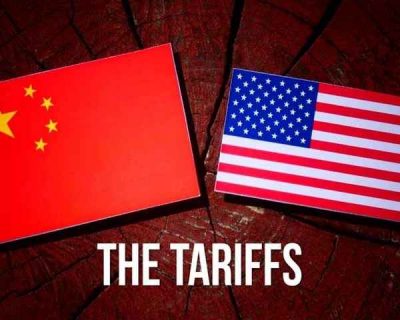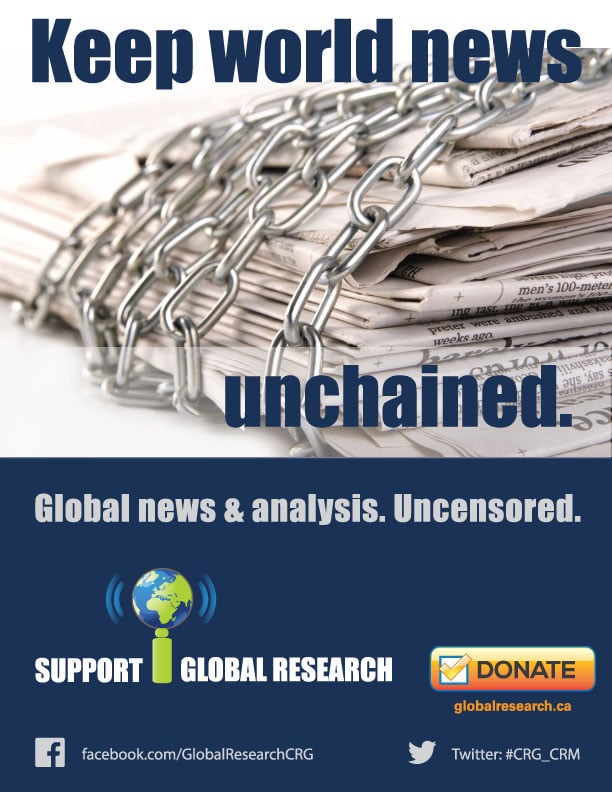US-China Economic Warfare: Chinese Enterprises Blacklisted by the US

The US considers China a strategic adversary. Waging war on the China by other means makes reconciling major bilateral differences all the harder.
According to a US Commerce Department’s Bureau of Industry and Security (BIS) document, 143 tech-related Chinese enterprises have been blacklisted from the US market.
They include companies involved in producing aviation related products, semiconductors, engineering, as well as other high-tech products and components.
Falsely claiming these enterprises act “contrary to the national security or foreign policy interests of the United States” is cover for wanting corporate America to have a leg up on Chinese competition.
On Friday, the BIS added five more Chinese tech enterprises to its blacklist, further heightening bilateral tensions ahead of China’s President Xi Jinping’s scheduled meeting with Trump for talks later this week at the Osaka, Japan G20 summit.
All blacklisted companies are barred from purchasing US technology without Washington’s permission, tech giant Huawei and its 70 affiliate companies most prominent on its so-called “entity list.”
A 90-day reprieve was granted the company before the order takes effect, enabling Huawei to fulfill existing orders and provide software updates for its mobile phone users.
In early June, China’s Commerce Ministry said it’ll blacklist what it called the country’s “non-reliable entity list,” comprised of foreign “entities, individuals and companies that block and shut the supply chain, or take discriminatory measures over non-commercial reasons, and when their actions endanger the business of Chinese companies…”
The announcement responded to the Trump regime’s blacklisting of Huawei, its affiliate companies, and other Chinese enterprises showing it won’t tolerate unacceptable US actions.
Beijing is prepared for a longterm struggle with the US, intending to pursue whatever it believes appropriate to defend its sovereignty and national interests.
Weeks earlier, China’s central economic planning authorities, its national development and reform commission, along with its ministries of commerce, industry and technology reportedly warned major US tech companies they’ll face “dire consequences” if they comply with the Trump regime’s ban to cut Huawei out of the global supply chain.
They were also warned them against relocating their production facilities to other countries, saying this action could have permanent consequences — perhaps restricting or banning them from the Chinese market, the most important one for many foreign enterprises.
As long as major Sino/US differences remain world’s apart, the number of blacklisted Chinese entities could expand exponentially. Over 300 Russian enterprises are banned from the US market.
Former US trade official William Reinsch said blacklisting five more Chinese entities is “ill-timed” ahead of this week’s Xi/Trump meeting, adding:
The action “clearly will be received negatively by the Chinese,” making resolution of bilateral differences all the harder.
Hostile US actions encourage its authorities to go all-out to develop homegrown technology, clearly a longterm project, China currently dependent on foreign suppliers for key high-tech products and components.
On Saturday, China’s official People’s Daily broadsheet said Beijing is “prepare(d) for a long fight if the US continues to escalate tensions (even if it) negatively affect China’s economy,” adding:
“To those who claim that China will lose, we have one thing to say: fear is not in our vocabulary.”
Last week, China’s Global Times stressed that the nation “must stay firm for negotiations,” adding:
“Negotiation outcomes are not often obtained through talks, but through fights. If desiring a good negotiation result, China must persist and not fear.”
“If the US imposes unfair conditions on China, it must be prepared for a protracted trade war and bear the consequential losses together with China.”
What’s likely from Xi/Trump talks later this week? Global Times editor Hu Xijin tweeted:
“Chinese side is concerned about the fairness of a trade deal. The most important part is the US side must remove all newly imposed tariffs since the trade war. Until now, what I’ve learned is China won’t accept a deal that the US keeps part of the tariffs.”
Trump regime negotiators rejected this demand earlier. They’re unlikely to soften their position ahead while things remain unresolved.
Perhaps Xi/Trump talks this week will end like when they last met on the sidelines of the Buenos Aires G20 summit late last year — agreeing to a 90-day truce for further talks.
Because of the Trump regime’s hardline position toward China, wanting the country weakened, contained, and isolated, no major breakthroughs are likely in Osaka.
Perhaps they’re out of reach entirely no matter how many more rounds of talks are held.
The US trade deficit with China is a minor issue compared to major ones.
China is an emerging political, economic, financial, technological, and military powerhouse. The US wants its growing power and influence curtailed.
That’s the stuff conflicts are made of. The risk of Sino/US confrontation ahead is real. The same goes for US relations with Russia.
Both nations stand in the way of US rage for global dominance — why eventual nuclear war is an ominous possibility.
*
Note to readers: please click the share buttons below. Forward this article to your email lists. Crosspost on your blog site, internet forums. etc.
Award-winning author Stephen Lendman lives in Chicago. He can be reached at [email protected]. He is a Research Associate of the Centre for Research on Globalization (CRG)
His new book as editor and contributor is titled “Flashpoint in Ukraine: US Drive for Hegemony Risks WW III.”
http://www.claritypress.com/LendmanIII.html
Visit his blog site at sjlendman.blogspot.com.
 Can you help us keep up the work we do? Namely, bring you the important news overlooked or censored by the mainstream media and fight the corporate and government propaganda, the purpose of which is, more than ever, to “fabricate consent” and advocate war for profit.
Can you help us keep up the work we do? Namely, bring you the important news overlooked or censored by the mainstream media and fight the corporate and government propaganda, the purpose of which is, more than ever, to “fabricate consent” and advocate war for profit.
We thank all the readers who have contributed to our work by making donations or becoming members.
If you have the means to make a small or substantial donation to contribute to our fight for truth, peace and justice around the world, your gesture would be much appreciated.

